I’m stoked to share some thoughts on Business Management IA Topic Ideas for Your Research Project/Case Study. When I started looking into my project, I was hit with a ton of business management ia ideas and business management ia topics that felt both exciting and a bit crazy at first.
I remember scrolling through different lists of ib business management ia ideas and feeling that spark of “this one might just work” because it connected with stuff I actually care about. It wasn’t just about picking any topic; it was about finding one that resonated with real business scenarios and my own interests.
I began by scribbling down some ia ideas business management that were directly linked to case studies and real-world examples. I even checked out a few ib business management ia topics that seemed to break things down in a way that made sense for my research, while some easy business management ia ideas helped me get a clear start.
Business Management IA Topics
I found that the more I looked into different business management ia questions and some solid ib business management ia examples, the more my ideas started to click into place. There were even a few business management ia research questions and hl business management ia ideas thrown into the mix that really opened my eyes to new possibilities.
What worked for me was experimenting with a mix of these options until I built a project that felt authentic and doable. I’m here to give you a heads-up on how sifting through these choices can actually be a cool process, not just a boring assignment.
1. Digital Transformation in Retail Businesses
- RQ1: How has the integration of digital technologies affected customer engagement and sales performance in [Retail Company]?
Overview: Analyze internal sales data, customer feedback, and digital marketing metrics to assess changes pre- and post-digital transformation. - RQ2: To what extent have digital channels contributed to the overall competitive advantage of [Retail Company]?
Overview: Compare market share and customer retention figures, and review case studies or industry reports that highlight digital strategy impacts. - RQ3: How do employee training and adaptation influence the success of digital initiatives in retail operations?
Overview: Conduct interviews with staff and review training records to understand the correlation between employee readiness and technology adoption.
2. Impact of Leadership Style on Organizational Performance
- RQ1: How does transformational leadership influence employee motivation and performance at [Company]?
Overview: Use surveys and performance data to examine the relationship between leadership practices and employee outcomes. - RQ2: To what extent does leadership style affect decision-making processes in [Company]?
Overview: Review internal case studies and conduct interviews to assess how different leadership approaches impact strategic decisions. - RQ3: How do variations in leadership style correlate with changes in organizational culture at [Company]?
Overview: Analyze company culture assessments and leadership transition periods to identify trends linking leadership style with cultural shifts.
3. Strategies for Sustainable Competitive Advantage in SMEs
- RQ1: How do strategic innovation and differentiation contribute to sustained competitive advantage in SMEs within [Industry]?
Overview: Collect case study data from successful SMEs, examining how innovation strategies create long-term market benefits. - RQ2: What role do resource management and operational efficiency play in maintaining competitiveness for SMEs?
Overview: Use financial and operational performance data from SMEs to determine the impact of efficiency on market positioning. - RQ3: To what extent does market segmentation influence the strategic positioning of SMEs in [Industry]?
Overview: Analyze market data and competitive landscapes, comparing segmentation strategies with overall business performance.
4. The Effectiveness of Corporate Social Responsibility (CSR) Initiatives
- RQ1: How do CSR initiatives impact brand perception and customer loyalty at [Company]?
Overview: Use customer surveys, brand tracking studies, and social media sentiment analysis to gauge CSR’s influence on reputation. - RQ2: To what extent do CSR practices affect the financial performance of [Company]?
Overview: Examine financial reports alongside CSR spending, and assess correlations between CSR initiatives and revenue growth. - RQ3: How do stakeholder engagement and CSR communication strategies influence the success of CSR programs?
Overview: Analyze internal and external communications, stakeholder interviews, and case studies to evaluate engagement strategies.
5. Impact of Innovation on Business Growth
- RQ1: How has product innovation driven revenue growth in [Company]?
Overview: Compare revenue trends before and after key innovations, using sales data, customer feedback, and industry reports. - RQ2: To what extent do innovation strategies contribute to market expansion in [Company]?
Overview: Examine market penetration data and competitive analysis to determine the link between innovation and market share. - RQ3: How do R&D investments correlate with long-term business performance in [Company]?
Overview: Use financial data and R&D expenditure records to analyze the return on investment from innovation efforts.
6. The Role of Marketing Strategies in Brand Building
- RQ1: How effective are digital marketing campaigns in enhancing brand equity for [Company]?
Overview: Analyze campaign performance metrics, customer surveys, and brand recognition studies to assess digital strategy outcomes. - RQ2: To what extent does content marketing contribute to customer engagement and loyalty at [Company]?
Overview: Evaluate content reach, engagement analytics, and conversion rates alongside customer feedback for a comprehensive view. - RQ3: How do integrated marketing communications influence overall brand perception in [Company]?
Overview: Review marketing mix strategies, media channel performance, and conduct interviews to understand the synergy between channels.
7. Supply Chain Management in Global Organizations
- RQ1: How do supply chain integration strategies impact operational efficiency at [Company]?
Overview: Analyze internal logistics data, supplier performance metrics, and case studies to assess improvements in efficiency. - RQ2: To what extent do risk management practices in the supply chain mitigate disruptions in [Company]?
Overview: Examine incident reports, risk assessment strategies, and supply chain resilience measures to determine effectiveness. - RQ3: How does technology adoption in supply chain management contribute to competitive advantage for [Company]?
Overview: Evaluate technology implementation projects, performance outcomes, and compare pre- and post-adoption efficiency data.
8. The Influence of Organizational Culture on Employee Performance
- RQ1: How does a collaborative organizational culture impact employee productivity at [Company]?
Overview: Use employee surveys, performance metrics, and internal reports to explore the relationship between culture and productivity. - RQ2: To what extent do cultural change initiatives improve employee satisfaction and retention at [Company]?
Overview: Review HR data, employee turnover rates, and feedback from cultural initiatives to evaluate change impacts. - RQ3: How do leadership and communication practices reinforce or hinder organizational culture at [Company]?
Overview: Analyze internal communications, leadership styles, and cultural assessments to determine their effects on workplace dynamics.
9. Mergers and Acquisitions: A Case Study of [Company]
- RQ1: How has the merger/acquisition affected the operational efficiency and market position of [Company]?
Overview: Compare pre- and post-merger performance metrics, market share data, and internal reports to gauge success. - RQ2: To what extent did cultural integration challenges impact the success of the merger/acquisition in [Company]?
Overview: Examine employee surveys, internal communications, and post-merger integration reports to assess cultural challenges. - RQ3: How do financial synergies achieved through the merger/acquisition influence long-term business sustainability at [Company]?
Overview: Analyze financial performance, cost-saving measures, and revenue growth to understand the merger’s strategic impact.
10. Financial Management and Its Role in Business Expansion
- RQ1: How do capital structure decisions affect the growth trajectory of [Company]?
Overview: Use financial statements and ratio analysis to evaluate the relationship between financing strategies and expansion. - RQ2: To what extent do investment appraisal techniques influence strategic decision-making at [Company]?
Overview: Analyze case studies of major investments, comparing predicted versus actual performance outcomes. - RQ3: How does effective cash flow management contribute to overcoming financial challenges during business expansion?
Overview: Review cash flow statements, liquidity ratios, and managerial strategies to understand how cash management supports growth.
11. Crisis Management and Business Resilience
- RQ1: How effective are crisis management strategies in mitigating operational disruptions at [Company]?
Overview: Examine case studies of past crises, evaluate response times, and assess recovery performance against set benchmarks. - RQ2: To what extent does proactive risk management enhance the resilience of [Company] during economic downturns?
Overview: Analyze risk assessment frameworks, crisis preparedness plans, and compare resilience metrics before and after implementation. - RQ3: How do communication strategies during a crisis influence stakeholder trust and brand reputation at [Company]?
Overview: Review internal and external communication records, stakeholder feedback, and media coverage during crisis periods.
12. E-commerce Adoption in Traditional Businesses
- RQ1: How has the shift to e-commerce impacted sales performance and customer reach at [Company]?
Overview: Compare sales data from brick-and-mortar versus online channels, using customer analytics and conversion rates. - RQ2: To what extent do technological investments in e-commerce platforms influence operational efficiency at [Company]?
Overview: Analyze implementation costs, system integration benefits, and efficiency metrics to evaluate technological impacts. - RQ3: How do customer satisfaction levels compare between traditional retail and e-commerce channels in [Company]?
Overview: Use customer surveys, feedback analysis, and service quality assessments to contrast the two channels.
13. The Impact of Remote Work on Organizational Productivity
- RQ1: How has the transition to remote work influenced productivity levels at [Company]?
Overview: Use performance metrics and employee surveys to assess changes in productivity before and after remote work adoption. - RQ2: To what extent do communication and collaboration tools facilitate effective remote work at [Company]?
Overview: Evaluate usage data, efficiency metrics, and employee feedback on digital collaboration platforms. - RQ3: How do remote work policies affect employee satisfaction and retention at [Company]?
Overview: Review HR data, conduct surveys, and analyze qualitative feedback to understand the impact of remote work arrangements.
14. Entrepreneurship and Start-up Ecosystems
- RQ1: How do incubator programs and mentorship initiatives influence the success rates of start-ups in [Region]?
Overview: Analyze case studies, survey start-up founders, and evaluate success metrics of businesses participating in support programs. - RQ2: To what extent does access to venture capital drive innovation and growth in local start-up ecosystems?
Overview: Use financial data, investment case studies, and interviews with venture capitalists to assess funding impacts. - RQ3: How do regulatory environments affect entrepreneurial activity and market entry in [Region]?
Overview: Evaluate local business regulations, interview entrepreneurs, and compare start-up success rates before and after regulatory changes.
15. The Role of Strategic Planning in Business Success
- RQ1: How does the strategic planning process influence long-term performance outcomes at [Company]?
Overview: Examine internal strategic documents, performance reviews, and compare planned versus achieved objectives. - RQ2: To what extent do scenario planning and risk assessment contribute to effective strategy formulation at [Company]?
Overview: Analyze case studies on strategic planning sessions, evaluate risk management practices, and assess their correlation with performance. - RQ3: How does employee involvement in strategic planning affect implementation and overall organizational commitment at [Company]?
Overview: Use surveys and focus groups to measure employee engagement levels during strategic planning and relate findings to implementation success.
16. Customer Relationship Management (CRM) and Its Impact on Sales
- RQ1: How does the implementation of a CRM system influence sales performance and customer retention at [Company]?
Overview: Analyze sales data, customer retention figures, and system usage reports before and after CRM implementation. - RQ2: To what extent do personalized marketing strategies driven by CRM data improve customer satisfaction at [Company]?
Overview: Evaluate marketing campaign performance, customer feedback, and engagement metrics linked to personalized initiatives. - RQ3: How does data analytics from CRM systems drive strategic decision-making in sales and marketing at [Company]?
Overview: Review case studies and internal reports on data-driven strategies, and assess how analytics influence product development and targeting.
17. Impact of Globalization on Local Businesses
- RQ1: How have local businesses in [Region] adapted their strategies to compete in a globalized market?
Overview: Use case studies, interviews, and performance data to assess adaptation strategies and their effectiveness. - RQ2: To what extent does access to international markets influence growth opportunities for local businesses in [Region]?
Overview: Compare export data, market penetration rates, and strategic initiatives aimed at entering international markets. - RQ3: How do cultural and economic factors affect the integration of local businesses into global supply chains?
Overview: Analyze qualitative data from interviews and quantitative performance metrics to evaluate integration challenges and successes.
18. Business Ethics and Corporate Governance
- RQ1: How does corporate governance influence ethical decision-making at [Company]?
Overview: Review governance frameworks, case studies of ethical dilemmas, and internal policies to assess decision-making processes. - RQ2: To what extent do ethical business practices contribute to long-term brand reputation and customer loyalty at [Company]?
Overview: Use customer surveys, reputation metrics, and case studies to explore the link between ethics and brand performance. - RQ3: How do regulatory frameworks and internal controls shape corporate governance practices in [Company]?
Overview: Analyze policy documents, audit reports, and interviews with management to understand the effectiveness of governance mechanisms.
19. The Role of Innovation in Business Model Transformation
- RQ1: How has the adoption of disruptive technologies transformed the traditional business model of [Company]?
Overview: Compare business model components pre- and post-adoption, using internal reports, market analysis, and innovation case studies. - RQ2: To what extent does continuous innovation drive revenue diversification and risk management at [Company]?
Overview: Analyze financial data, revenue streams, and strategic innovation initiatives to determine diversification benefits. - RQ3: How do customer insights and market trends influence innovation-driven changes in [Company]’s business model?
Overview: Utilize market research data, customer surveys, and strategic planning documents to assess how market feedback drives innovation.
20. The Influence of Data Analytics on Decision Making in Organizations
- RQ1: How does the integration of data analytics tools impact strategic decision-making at [Company]?
Overview: Examine case studies, internal data usage reports, and interview decision-makers to understand analytics’ role in strategy. - RQ2: To what extent do data-driven decisions improve operational efficiency and financial performance at [Company]?
Overview: Compare performance metrics before and after analytics implementation, and assess improvements in efficiency and profitability. - RQ3: How do organizational culture and leadership affect the adoption and effectiveness of data analytics in [Company]?
Overview: Use surveys and interviews to explore cultural attitudes towards data, and correlate leadership support with analytics outcomes.
Wrapping Up
I gotta say that putting together your Business Management IA project can be way more fun than it first seems. I learned that mixing different business management ia ideas and business management ia topics lets you create something that feels uniquely yours.
Even when the list of ib business management ia ideas and business management ia questions looked endless, I found that comparing easy business management ia ideas with more challenging ones helped me get a solid grip on what I really wanted to express.
Exploring some ib business management ia examples and digging into specific business management ia research questions made my project feel more concrete and less like a pile of random thoughts. I even tossed in a few hl business management ia ideas that pushed me to see beyond the obvious.
Trust me, when you blend ia ideas business management with different angles, your project becomes a genuine reflection of your interests in business.
Just keep it chill, mix things up until you find your groove, and remember that each piece of advice can help you build something that’s totally you.








